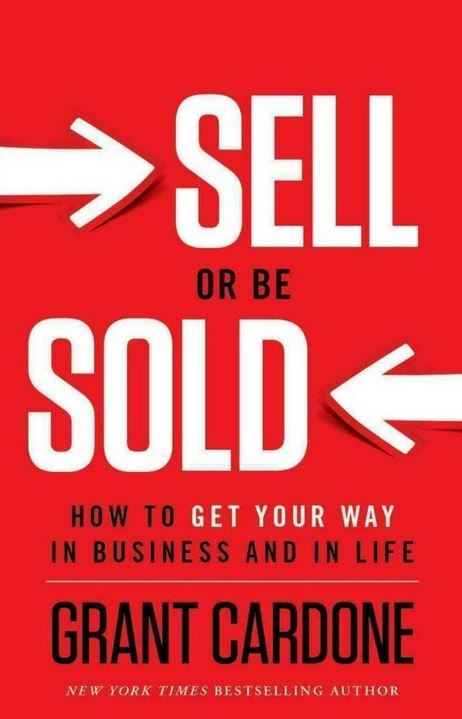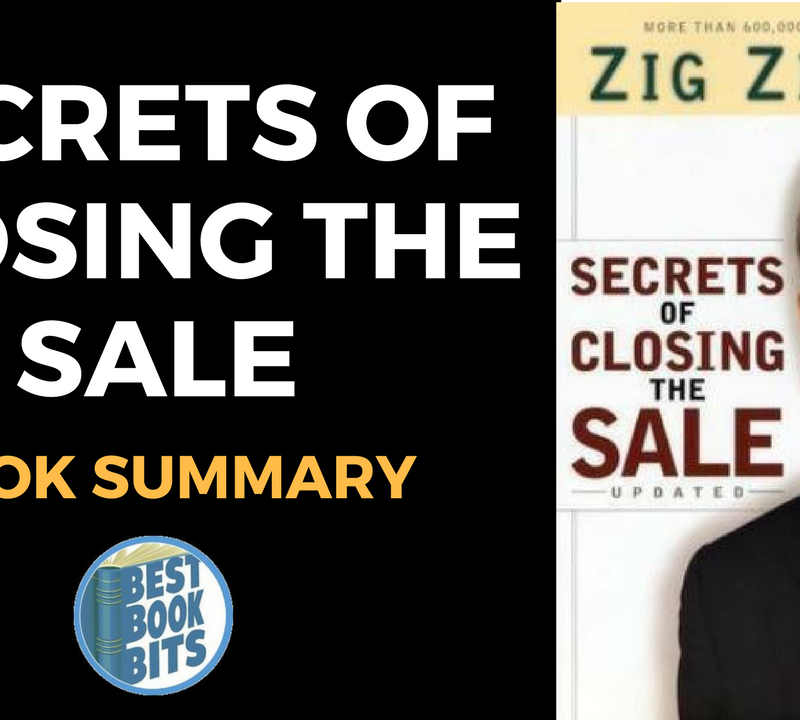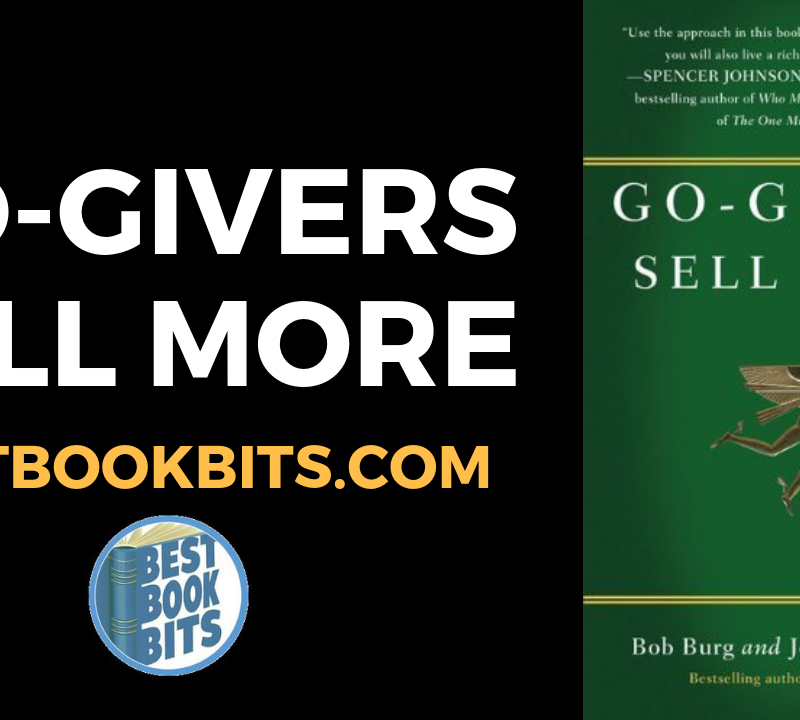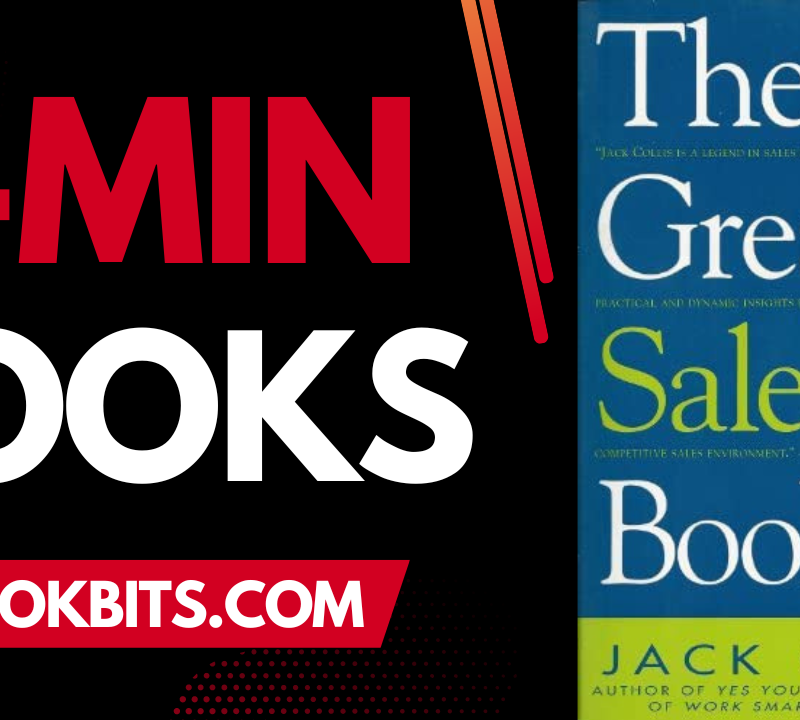♣ CLICK THIS TO STOP TRYING TO ACHIEVE YOUR GOALS BY YOURSELF AND BE COACHED TODAY HERE
♥ CLICK THIS TO DOWNLOAD THIS FREE PDF SUMMARY HERE
♦ CLICK THESE FOR THE FOLLOWING Book | Summaries | Course
YouTube |Spotify | Instagram | Facebook | Newsletter | Website
20)
- Your prospects are more value-conscious and information-conscious than ever.
- You must identify what is important to any given prospect, then learn how to appeal to those values.
- Be a tactful educator and facilitator-not steamroller.
- Treat all your sales work as a consulting assignment.
- The best salespeople are professional problem solvers.
- Listening is the first part of the secret, and identifying the mutually accepted solutions is the second part.
- Referrals are the life blood of a successful career in sales. And yet salespeople are usually terrified to ask for them.
- Enthusiasm builds bridges.
- Realize how important attitude is in sales work.
19)
- The way of the world is meeting people through other people, and the referral is the warm way we get into people’s lives.
- The chances of making the sale were almost four times greater with referrals.
- Building your business from referrals is the best route to success.
- Cold calling is God’s punishment for failure to get enough referrals.
- Listening is the most important relationship skill you can practice.
- A relationship that’s had a problem handled well is a stronger relationship than one that’s never had a problem.
- The three keys to asking prospects for referrals are. 1) Serve them before you sell them. 2) Plant seeds that you are building your business from referrals. 3) When the rapport is good, ask them directly for referrals.
- Be a serve person first, and a salesperson second.
- If you don’t have an attitude of service, your ability to gain referrals will be severely limited.
18)
- The question in the world of sales is: How do you persuade? Answer. You don’t persuade by telling, you persuade by asking. A large portion of selling is devoted to asking questions, with emphasis on listening for the answers.
- Selling with integrity is the only way you can build a long-term career with the same company selling the same product to the same people – which brings sales stability and financial security.
- Attitude is always a player on your team.
- All successful sales professionals utilize listening skills to their fullest.
- Interestingly enough, the more salespeople know about their prospects needs, the better position they are in to meet those needs.
- If we can give someone a reason for buying and an excuse for buying, the chances are rather dramatically improved that he will buy.
- People buy what they want when they want it more than they want the money it costs.
- Emotion makes the prospects take action now, and logic enables them to justify the purchase later.
- Fear of loss is greater than the desire for gain.
17)
- The ability to see the situation from the other side is one of the most important skills a negotiator can possess.
- Recognize and understand emotions, theirs and yours.
- Listen actively and acknowledge what is being said.
- Face the problem, not the people. Don’t view the other side as adversaries.
- For a wise solution, reconcile interests, not positions.
- Ask for principled justification of their stance to show them how ridiculous it is.
- Don’t be a victim.
16)
- At any one time, for any product or service, 3% are buying now. 7% are open to the idea of buying. The remaining 90% are in 3 categories. The top 1/3rd are not against it, nor for it, just “thinking about it”. The next 1/3rd “think they’re not interested”. The final 1/3rd are “defiantly not interested”
- The hardest thing we need to do today is grab the attention of potential buyers and keep their attention long enough to help them buy your product.
- When you sell you break rapport, but when you educate, you build it.
- 7 Steps in Selling. Establish rapport, Qualify the buyer, Build value, Overcome objections, Close the sale and follow up.
- Be empathetic and care about them. Be more interested in them than anyone else has ever been. If you want to be fascinating, be fascinated.
- Mirror body language and tonality.
- Ask great questions to find common interests and get personal.
- Have a sense of humour.
15)
- If you are completely fluent in closing and absolutely confident in your ability to ask for the order you will be more aggressive in prospecting in the first place and have higher self-esteem.
- Personality constitute 80% of your success.
- Top salespeople accept 100% responsibility for everything they do.
- Top 3% of people in every organization look at themselves as self-employed.
- Your customer can never believe in your product anymore than you do.
- Top salespeople know what they’re going to say word for word and rehearse. Poor salespeople wing it and sweat as they say whatever comes to their mind and hope.
- Prospecting, presenting and closing are the only 3 activities that pay you money. All the rest is waste.
- Your goal is to make the closing as smooth as possible for the customer.
It should be quick and your whole presentation should be structured with the close in mind.
14)
- When we are negotiating, we try to get the other person to agree with us.
- You are not able to control the other’s behaviour, but you can control yours.
- Having control of your behaviour is the first step in overcoming the other’s “no.”
- Start by trying to see the other’s point of view. Even if something seems completely irrational to you, it may be that the person has a valid argument.
- Communicate Persuasively and Optimistically.
- Remove any obstacles in the way of the business, so you get a “yes” more quickly.
13)
- If the prospect has a problem, they want to solve it.
- Sales process is a constant closing process.
- Make it easy for prospect to buy and translate it into an affordable amount.
- Asked lots of questions. Every professional or tax consultants / doctors / lawyers. Socratic method of leading people to decisions.
- People don’t buy just what they really need. We sell people what they want.
- People buy what they want when they want the item MORE than the cost of that item.
- Closing is an attitude. It’s everything that matters in sales.
- Selling is a transference of feeling.
- If you are convinced, you can be convincing.
- Logic makes em think. Emotion makes em act. Logic + emotion together = want to own.
- Persistence separates the best salespeople.
12)
- The SPIN sequence of questions
- Situation Questions
- Problem Questions. Explore problems, difficulties and dissatisfaction.
- Implication Questions.
- Need-payoff Questions.
- Successful sellers concentrate on objection prevention, not on objection handling.
- Your objective shouldn’t be to close the sale, but to open a relationship.
- The idea is to take a problem that the buyer perceives to be small and build it up into a problem large enough to justify action and build up the value or usefulness of the solution.
11)
- The master salesman is a master of other because he is master of himself.
- The master salesman becomes a master because of his or her ability to induce other people to act upon motives without resistance or friction.
- You must sell yourself. You must sell your personality.
- The master salesman paints a word picture of the thing he if offering for sale. The canvas on which he paints in the imagination of the prospective buyer.
- Showmanship is one of the important factors in master salesmanship.
- People buy personalities and ideas much more quickly than they buy merchandise.
- Remember that people are motivated to buy, or not to buy, through their feelings. Remember also that much of what they believe to be, their own “feelings,” consist, in reality, of thought impulses which they have unconsciously picked up from vibrations of thought released by the salesman.
10)
- Successful selling is essentially a matter of being a first-class communicator.
- Ask more people to buy what you sell.
- Without prospects, a salesperson has no business. The quality of our prospects decide the level of our success.
- The goal of the modern salesperson is to ‘reach agreement’ rather than ‘overcome objections.’
- Don’t sell me products or services. Sell me ideas, a better self-image, freedom from fear and want, and a philosophy on life that will enable me to grow and reach my potential as a human being.
- More than 70 per cent of all sales are made on emotional issues, and unless the prospect becomes emotionally involved with the product or service, they are unlikely to buy.
- There are only two reasons why people buy: 1. To solve a problem. 2. To make themselves feel good.
- Give a hard ‘no’ when an easy ‘yes’ might suffice.
- Always be hard on the problem, but soft on the people.
09)
- Becoming a successful salesperson requires learning how to sell yourself first. This is because buyers “buy into” the seller initially before they do the product or service.
- Recognize that you are your company’s number one product.
- Successful salespeople believe in what they are selling. An excellent salesperson is one hundred percent convinced about the product or service he is carrying.
- Believe that one can sell to every prospect. Remove any form of negative thinking.
- Create a winning self-image. A positive self-image influences other people believe to believe in you.
- Create an appearance of success. Look professional. A professional appearance goes beyond clothing.
- Make the prospect feel important. Let the customer feel the salesperson’s sincerity.
- Bring a sense of humor to the sales presentation. Nonetheless, use humor at the right time to relax and make the prospect feel comfortable.
- Assume the sale.
- Know how to read buying signals.
- Appeal to prospect’s ego.
- The salesperson must assume the role of authority in the process.
- Give the customers so much service that they will feel guilty thinking about doing business with somebody else.
08)
- Advance and conquer while others contract and retreat.
- Unreasonable amounts of activity, way beyond what’s considered normal. You should restructure your day to focus on the most important thing for every business – SALES.
- Reactive your power base from the people you know and have done business with.
- The people you know either have the money you want or know people who do.
- Contacts turn into contracts, and the more contacts, the more contracts.
- Be unreasonable. Quit being reasonable – don’t settle for just getting by.
- Get uncomfortable and take unreasonable amounts of action. The discomforts you experience now will guarantee that you’ll be comfortable in the future.
- Any attention is better than no attention.
- Don’t forget add-on sales, second money is always easier than first money.
- 80% of sales are made on the fifth to twelfth contact, but only 10% of salespeople call beyond three times.
- Ask for referrals.
- Deliver at WOW levels.
- There is no shortage of money, but there is a shortage of action and follow-through.
07)
- Talk with a little enthusiasm and arouse yourself inside.
- Force yourself to act enthusiastic, and you’ll become enthusiastic.
- Selling is the easiest job in the world if you work it hard – but the hardest job in the world if you try to work it easy.
- You can’t collect your commission until you make the sale; You can’t make the sale ‘til you write the order; You can’t write the order ‘til you have an interview; And you can’t have an interview ‘til you make the call!
- The most important secret of salesmanship is to find out what the other fellow wants, then help find the best way to get it.
- Be an assistant buyer, I assumed the role of assistant buyer in charge.
- People don’t like to be sold. They like to buy.
- Clothes don’t make the man, but they do make ninety percent of what you see of him.
- Open your conversation with a big smile, and feel the difference.
- A salesman cannot know too much but he can talk too much.
- Find out about a prospect’s hobby, and then talk about that hobby.
- It is all in the approach. A customer is either sold or missed by the approach.
- The first, and probably the most important, step in selling anything: “Sell yourself first!”
- The foundation of sales lies in getting interviews, sell the appointment and then sell your product.
- New customers are the best source of new business. New customers!
06)
- One of the basic truisms of selling is that “slumps” will occur. You are going to hit those plateaus where nothing seems to work very well personally or professionally.
- Selling can be and should be fun, so let’s make it clear from the beginning that a sense of humor combined with self-esteem that allows you to laugh at yourself will play a significant part in your success in your chosen profession.
- Realize that the majority of highly paid veterans in sales (or in any field) are hard workers.
- Work to stay current with the all-important, ever-changing areas of product knowledge and communication skills.
- The one thing that customers have always rated highest in the sales world is trust.
- Listen with your eyes.
- You can have everything in life you want if you will just help enough other people get what they want!
- Prospecting is the most important key to sales success! Without prospects you are disqualified as a sales professional.
- Until you have a prospect, you have no chance of making a sale.
- Winners sell benefits. Paint the picture so your prospect sees personal benefits.
05)
- Establish a buying motive by creating a need or want or strong desire in the prospect’s mind.
- Remember our common human weakness: Not being able to say “no” to a gracious, persuasive, persistent, positive person.
- Always try at least once more to close the sale.
- Your Most Important Asset – Your Attitude.
- Believe that you can close every prospect on whom you call. Expect success.
- Be calm, serene, poised. Exert gentle positive persuasion based on factual knowledge and confidence. Avoid being too eager.
- Respect your prospect’s time. Be persistent. Be enthusiastic. Don’t talk too much. Use as few words as possible, especially at the close.
- To close, you must overcome the FEAR in the prospect’s MIND by REASSURING him. Instil confidence. Give him courage.
- Adjust the speed and tempo of your sales presentation to the speed at which your prospect thinks.
- Expect orders. Assume the prospect is going to buy. It’s just a matter of what kind, how many, and when.
04)
- Don’t try and blaze your own trail. Instead, learn from the success of others. Study the sales techniques which have worked for other people in other settings and with other products and services. Evaluate what worked for them, adapt these principles to suit your own specific product or service and move ahead.
- In selling, everything counts, but 80-percent of your success will derive from the quality of your personality.
- The key to sales success lies in doing everything you can to build your self-esteem. The higher your self-esteem, the more successful you’ll be in a sales role.
- The very essence of sales success is to build and maintain high-quality relationships with customers. The only way to do that is with trust and credibility.
- Selling professionally is quite simple — it’s the process of persuading someone the value they will receive from your product or service is greater than its cost.
- Today’s prevailing sales model. 40% — Building trust. 30% — Identifying specific needs. 20% — Presenting solutions to needs. 10% — Confirming and closing.
- You are in the business of developing professional selling friendships.
- Top salespeople have clear, written goals.
- Most sales are made or lost within the first 30-seconds of contact.
- All top salespeople consciously and deliberately orchestrate every single element of their environments. This attention to detail is the mark of a true professional.
03)
- Plain and simple, if your prospect doesn’t trust you, there’s absolutely no way they are going to buy from you.
- The prospect must trust the product, you and your company.
- People don’t buy on logic; they buy on emotion, and then justify their decision with logic.
- If you want to close at the highest level, then you’re going to have to create both types of certainty – logical and emotional.
- Take immediate control of the sale, and then move the prospect from open to the close along the shortest distance between any two points: a straight line.
- You must engage in massive intelligence gathering, while you simultaneously build massive rapport with your prospect.
- Every word, every phrase, every question you ask, every tonality you use; every single one of them should have the same ultimate goal in mind, which is to increase the prospect’s level of certainty as much as humanly possible, so that by the time you get to the close, he’s feeling so incredibly certain that he almost has to say yes. That’s your goal.
- You’re going to have to ask for the order at least two or three times before you have any chance of your prospect saying yes.
- A prospect must cross over the “threshold of certainty” before he or she feels comfortable enough to buy.
- Three things you absolutely must come across in the first four seconds. Be sharp as a tack, enthusiastic as hell and an expert in your field.
- If you make a negative first impression, it takes eight subsequent positive impressions to erase that one negative first impression.
- Tonality and body language comprise approximately 90 percent of our overall communications.
- Your success is still going to be contingent on your ability to trigger a key emotional state within yourself as you’re about to enter the sales encounter, and then maintain that state to the very end.
- Remember that getting into a rapport with someone is done primarily through tonality and body language, not your words.
- You should always use a script, whether you’re selling in person or on the phone.
02)
- Selling wasn’t an innate ability. It was a set of identifiable skills that could be learned.
- Surveys of customers consistently show that they put the highest value on salespeople who make them think, who bring new ideas, who find creative and innovative ways to help the customer’s business. Customers demand more depth and expertise. They expect salespeople to teach them things they don’t know.
- The challenger rep is the rep who loves to debate. The one who uses his or her deep understanding of a customer’s business not simply to serve them, but to teach them: to push their thinking and provide them with new and different ways to think about their business and how to compete.
- Six attributes that set Challenger rep’s apart. 1) Offers the customer unique perspectives 2) Has strong two-way communication skills 3) Knows the individual customer’s value drivers 4) Can identify economic drivers of the customer’s business 5) Is comfortable discussing money 6) Can pressure the customer.
- The challenger is focused on pushing the customer out of their comfort zone.
- The challenger rep wins by maintaining a certain amount of constructive tension across the sale.
- Customers place a great deal of importance on a smooth, uncomplicated purchase.
- Customers are saying rather emphatically, “Stop wasting my time. Challenge me. Teach me something new.”
- Customer loyalty is a result not of whatyou sell, but how you sell.
- Demonstrate a high level of professionalism.
- Don’t make your customers work so hard to spend their money!
- Teaching, tailoring, and taking control.
01)
- Selling is a prerequisite for life. Selling impacts every person on this planet. Your ability or inability to sell, persuade, negotiate, and convince others will affect every area of your life and will determine how well you survive.
- The ability to communicate and convince others is an asset for you; the inability to communicate is a liability.
- This inescapable truth is that to be truly great at anything, you must devote yourself, your energy, and your resources to a career in selling.
- The ability to predict is the first thing that happens when you become a professional.
- A salesman who can’t close deals won’t like selling.
- Selling yourself. Only to the degree you are sold can you sell.
- You have to be 100 percent certain that what you’re selling is better than all other options.
- Being unreasonable means that you are sold on what you’re selling, and it is your conviction alone that will sell others on it.
- Become so thoroughly sold on your product that your conviction is irresistible to others.
- I assure you that the less hung-up you are on money, the easier money will come to you.
- Most sales are lost over unspoken objections.
- You have to get your buyer to want your product more than he wants his money.
- Your prospect is never the problem – never! Salespeople, not the prospect, are the ultimate barriers to every sale.
- Love your product, love your service, love your customer, and love yourself enough to learn how to “hard sell.”
- It’s vital that salespeople know about people first and products second.
- Selling is 80 percent people and 20 percent product.
- Be more interested in the customer than you are in yourself, your sales process, your product, or your commission and you will make more sales.
- Communication = Sales. If you don’t get into communication with the buyer, you have no chance of ever making the sale.
- The human quality involved in selling can never be replaced.
- People are senior to products.
- Always, always, always agree with the customer.
- Never negotiate with words. Write your negotiations down on paper.
- Service is senior to selling and giving is senior to getting.
- Human beings are much more valuable than money. Treat them like that and you’ll be rewarded.
- The Hard Sell. It has been said that you have to ask someone five times before you get a yes.
- Take Massive Action. Most people incorrectly estimate the amount of effort it takes to get the results they want.
- Remember that a product can be shopped, but a great attitude cannot.
- The best sales processes are shorter rather than longer.
- Treat success as your duty, obligation, and responsibility, not as a choice or as a job!
♣ CLICK THIS TO STOP TRYING TO ACHIEVE YOUR GOALS BY YOURSELF AND BE COACHED TODAY HERE
♥ CLICK THIS TO DOWNLOAD THIS FREE PDF SUMMARY HERE
♦ CLICK THESE FOR THE FOLLOWING Book | Summaries | Course
YouTube |Spotify | Instagram | Facebook | Newsletter | Website

































